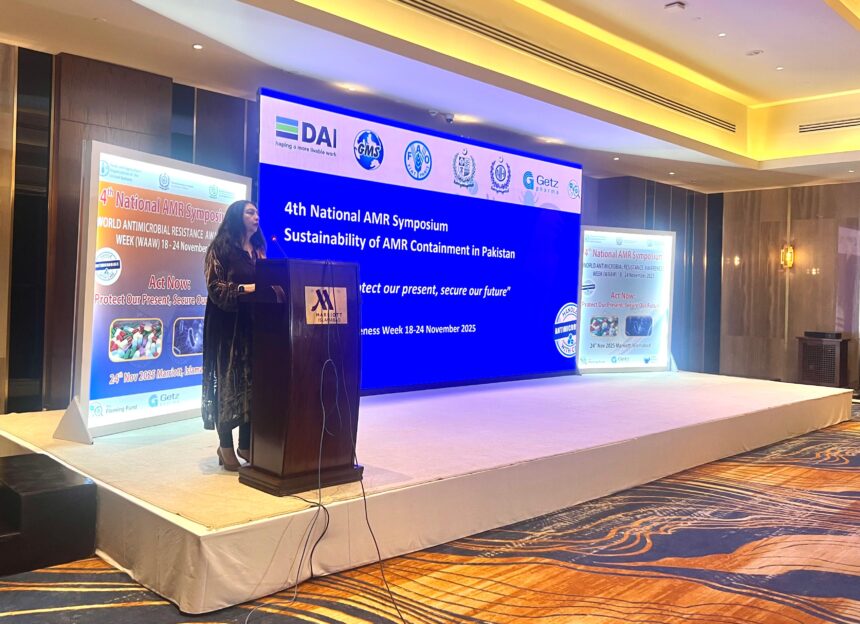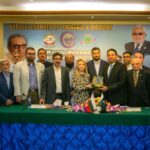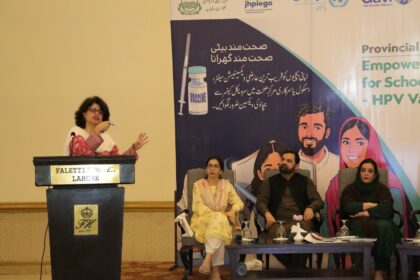NIH Warns AMR Becoming a “Silent Pandemic” as Pakistan Scrambles to Sustain Fight Against Drug-Resistant Infections
Islamabad: Pakistan’s top health authorities have sounded an urgent alarm over the escalating threat of

antimicrobial resistance (AMR), warning that the country must shift from awareness to long-term sustainability or risk losing lifesaving medicines to drug-resistant infections. The warning came during the National AMR Symposium held in Islamabad to mark World AMR Awareness Week, where officials stressed that Pakistan’s systems—built with years of international support—will collapse without strong domestic commitment.
The National Institutes of Health (NIH), Ministry of National Health Services (MoNHSRC), and the Fleming Fund jointly organized the symposium under the theme “Sustainability of AMR Containment in Pakistan.” Health officials, policymakers, and international partners convened to evaluate progress and outline a concrete plan to maintain critical AMR systems across human, animal and environmental health sectors.
Opening the event, Dr. Muhammad Salman, CEO NIH, described AMR as a “silent pandemic” threatening global public health. He said the country has spent years establishing surveillance, diagnostic and policy structures, but the next challenge is far more difficult—ensuring long-term sustainability as donor support decreases. “This week is not just about awareness; it is a call to action,” he said, adding that Pakistan must safeguard hard-won gains by strengthening local capacity.
In his inaugural remarks, the Special Secretary Health reaffirmed the government’s resolve to enforce AMR-related policies and mobilize resources. He said that sustainable containment is only possible through a One Health approach, emphasizing closer coordination between provincial human health, animal health and environmental sectors.
Dr. Ayesha Isani Majeed, Director General of Health, highlighted the need for Pakistan to fully operationalize the National AMR Action Plan (NAP). She said regulatory enforcement, hospital practices and community awareness must improve urgently to protect the effectiveness of lifesaving antimicrobials. “AMR containment is a national priority,” she stressed, calling for stronger frameworks and responsible antimicrobial use in all healthcare settings.
Representing the Fleming Fund, Dr. Qadeer Ahsan underscored the need for Pakistan to transition toward self-reliance. He said the Fund has heavily invested in modern diagnostics and surveillance networks, and the symposium aims to ensure these gains are not lost once international funding cycles end. Sustainable local financing, he said, is essential for maintaining data systems that inform national policy and save lives.
The technical sessions focused on One Health pillars, Infection Prevention and Control (IPC), and Healthcare-Associated Infections (HAI) surveillance. Experts presented new data showing Pakistan’s evolving resistance patterns and emphasized that strong IPC practices remain the first line of defense. Speakers also discussed Environmental AMR Monitoring, warning that resistant pathogens are increasingly found in wastewater and soil due to weak disposal and waste management systems.
The symposium concluded with a high-level panel discussion on implementing AMR NAP 2.0, identifying gaps in provincial coordination, operational bottlenecks, and resource shortages. Stakeholders agreed on a national roadmap to strengthen inter-provincial cooperation, enhance surveillance, and institutionalize AMR strategies ahead of the next global review cycle.
Officials emphasized that without immediate action to sustain AMR containment systems, Pakistan risks sliding into a future where even routine infections become untreatable, placing millions at risk.
Read in Urdu: ہفتہ برائے آگاہی اینٹی مائیکروبیل ریزسٹنس کے موقع پر نیشنل اے ایم آر سمپوزیم کا انعقاد











